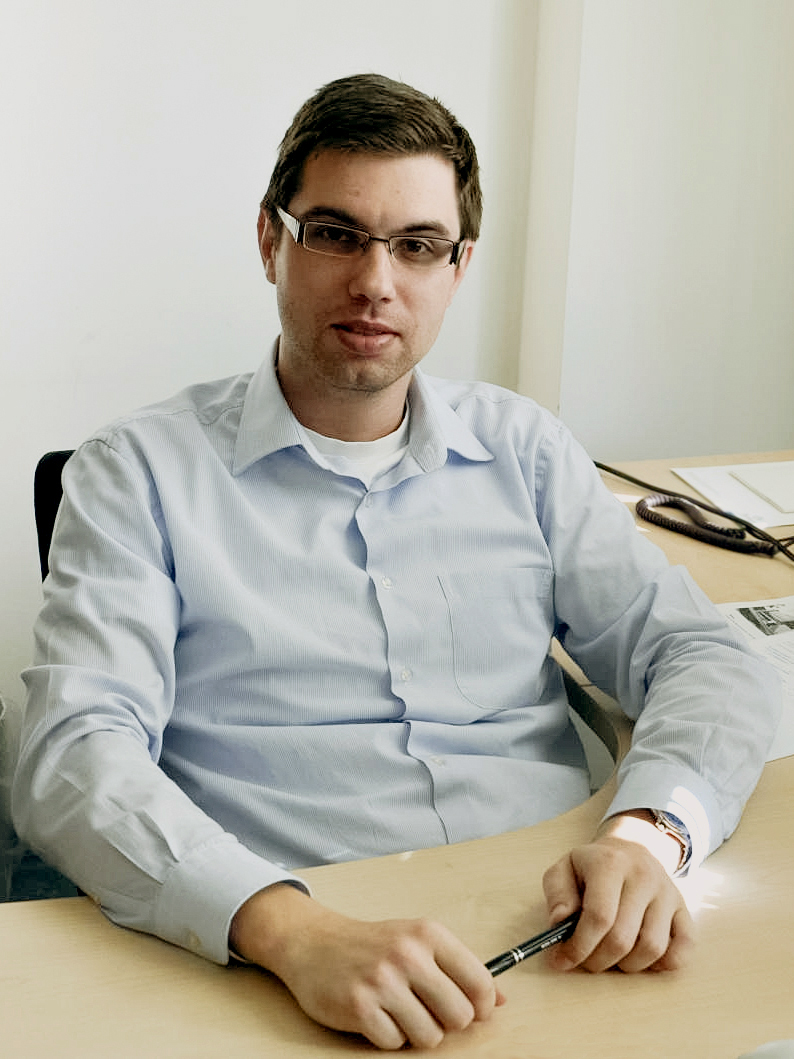
How To Master Financial Markets? Our Lecturer Martin Sirucek Shares His Tips
Financial markets are sometimes an unforgivable place where even a small misjudgment can have dire consequences. Our lecturer Martin Sirucek shares fundamental principles of success in financial markets.
Good day, Mr. Sirucek. Could you share with us what do you teach at LIGS University? What will students learn in your course?
I teach Financial Markets and Investments and lead dissertation topics. Students in my course will learn the basic principles of financial markets, capital markets and investments with shares and bonds. They will also grasp the way of operation of financial market institutions, such as banks, insurance companies, pension funds, collective investment funds, etc.
However, the main purpose is to teach students how to think critically. Not memorize the facts but analyze the situation and predict consequences for the market, whether it concerns the real estate market, capital market, or the bond market bubble.
A part of the course deals with investment decisions. What is the difference between investing and speculating?
The difference is, let´s say, mainly in the investor´s discipline. It is important to realize that both investing and speculating carry their own set of risks, and the possible result might be a financial loss. The important fact is that investing is overall less risky than speculating. The reasons are twofold.
Firstly, investing is seen as a long-term activity based on the type of asset. In most cases, it is also connected to a concrete goal – for example, to protect cash from inflation, secure a passive source of income, etc.
An investor also chooses investments based on a more thorough analysis. A typical investor acts rationally – meaning he/she abides by the set of rules, or at least tries because it is very hard sometimes. To watch a fall in a market is not for everybody.
Secondly, there is a principle of regular investment. This minimizes the risk of bad timing of entry into an investment position (meaning entry during the market peak, shortly before the market drop). I would advise you not to monitor the market during investing (meaning real long-term investment). You should look at it once a year tops to see how you are doing and invest regularly each month. If you achieved the set goal already (e.g. investment horizon or planned goal) you should step out of the investment.
If the investor gets greedy, meaning he has reached the gain that you set out (like, let´s say 20 %), but he/she sees (hopes) that the markets are and will be on the rise, it can turn against the investor.
An investor that deals with speculating, is, on the other hand, trying to také maximum advantage of market fluctuations. However, the risk of these investments might be very high. He also often uses capital that he does not own – meaning he lends money. Therefore he can also get bigger revenue, but there is also a big risk of financial loss, and being in that situation is never easy, I can speak from my own experience. Of course, the investor hopes in the reversal of the market trend and he will gain profit. However, if the market development is against him, he can use his position to demand margin calls. It means that if the securities decrease in value below a certain point, he can ask an investor to add money or securities so that the account is brought up to minimum value. So the speculator can either lend more money or accept a 100 % loss. This situation can come within minutes or hours.

What traits does a capable investor need to have?
He needs to stick to a strategy and rules. It is easier said than done, however, since we are not machines without feelings and psychology that are our disadvantage in this field. That is why an intelligent investor needs to act rationally and stick to his/her strategy, e.g. invest regularly for 7 years a set amount of 50 dollars into a specific asset no matter what.
Another trait of an intelligent investor is to be willing to accept a loss. He needs to be able to sell his investments even with loss during the bad times and come to terms with the fact that it might take time to get the money back.
And lastly, an intelligent investor does not invest money in the period when everybody is talking about this „new amazing asset“ and how good it is to invest in the market now.
You talked about emotions as a disadvantage. How much they influence investing and how to deal with them?
Very. Most people who tried to valorize their money – either on the capital market or by buying a house – and got burned will never invest again. People need to accept and be calm about the fact that markets fluctuate – a lot sometimes. So you have to keep the cool even if you see a red number.
I have two tips to handle emotions. They are simple: Do not watch it! Do not invest in something you know nothing about!
The first rule is straightforward. Check on your regular investments once a year to not make rash decisions. The second rule is also simple. If someone understands nanotechnology, AI or renewable resources, it is a great idea to invest in those. However, if I do not understand the principle of how these things work, in fact – I have NO IDEA, I prefer a diversified portfolio of global, American or European index.
What other risks do investors encounter?
As I mentioned earlier – the risk that you will lose trust in the market after the first fail. The opposite extreme comes with increased appetite. An investor could start with his activities in good times when the market was at its peak and gain a big profit. There is, however a risk, of conviction that he also gained experience and based on this assumption tries to make riskier investments that he might not fully comprehend. So there is this lack of failure that can lead to the feeling of invincibility.
What do students learn in your courses that they can use in their life?
To connect the dots. Hopefully. And to foresee the consequences of events at the financial markets and use them to their advantage or to get the results they desire.



